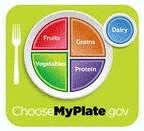Nutrition and Health Sciences, Department of

Department of Nutrition and Health Sciences: Dissertations, Theses, and Student Research
First Advisor
Lisa Franzen-Castle
Second Advisor
Megan Kelley
Date of this Version
3-2018
Document Type
Thesis
Citation
Anderson, L. (2018). Choose Healthy Here Pilot Program: A Secondary Analysis of Consumers' Behaviors and Perceptions to Access and Affordability of Healthy Foods.
Abstract
Over one-third of adults in the United States are obese. Recent shifts in research have focused on environmental issues to understand and address this epidemic, primarily within the food environment. The goal of this study included examining customer perceptions and behaviors towards access and affordability of healthy foods in rural food retail venues across Nebraska. Differences were assessed between stores, with the Choose Healthy Here (CHH) pilot program implemented at treatment stores only. Process surveys were completed by participants ≥19 years of age. Statistical analysis was performed with a p≤0.05 level of significance used.
Overall, participants (n=148) were rural residents, primarily white, female, with an education level of some college or higher, and had a mean age of 48 years. Participants generally agreed they had adequate access to healthy food, but also agreed they had access to unhealthy foods. Significant correlations were found across the total sample between income and education, income and perceived health status, and education and perceived health status. Over half used nutrition labels when shopping and a positive correlation was found between using labels and age. Over one-third consumed 1 cup or less of fruits and vegetables each per day. Fruit consumption was significantly higher in the treatment group (n=90). Purchasing of fruit and vegetables and fruit consumption were positively correlated with education level across total sample. Treatment participants noticed more healthy signage, whereas control (n=58) noticed more unhealthy signage. Further exploration of healthy food retail programming could positively influence behaviors which may affect dietary intake.
Advisors: Lisa Franzen-Castle and Megan Kelley


Comments
A thesis Presented to the Faculty of The Graduate College at the University of Nebraska In Partial Fulfillment of Requirements For the Degree of Master of Science, Major: Nutrition and Health Sciences, Under the Supervision of Professors Lisa Franzen-Castle and Megan Kelley. Lincoln, Nebraska: March, 2018.
Copyright (c) 2018 Lindsey R. Anderson